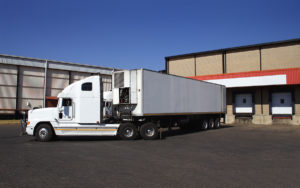Understanding the Importance of Regular Brake Checks for Heavy-Duty Vehicles

Regular brake checks are essential for all vehicles, especially heavy-duty vehicles like semi-trucks, passenger buses, and freight trucks.
When it comes to heavy-duty vehicles, safety is paramount. These vehicles, including trucks, buses, and large commercial vehicles, are crucial to industries like transportation, logistics, and construction. However, due to their size and weight, they also pose a higher risk on the road if not properly maintained. One of the most critical components of any heavy-duty vehicle is the braking system. Regular brake checks are not just a recommended maintenance task; they are essential for ensuring the safety of the driver, the vehicle, and everyone else on the road. Understanding the importance of brake checks can help prevent accidents, extend vehicle life, and improve overall performance.
Why Regular Brake Checks Are Crucial
- Ensuring Road Safety: The primary reason for regular brake checks is to ensure safety. Heavy-duty vehicles have a much longer stopping distance than passenger cars, especially when they are fully loaded. If a brake system fails or underperforms, it significantly increases the risk of accidents. Brake failure can lead to catastrophic accidents, especially on highways or in congested areas. Regular brake checks help identify issues like worn-out brake pads, leaking brake fluid, or malfunctioning brake lines, all of which can compromise braking efficiency.
- Preventing Costly Repairs: Heavy-duty vehicle repairs can be expensive, and brake system repairs are no exception. Regular brake maintenance can help catch small issues before they turn into costly repairs. For instance, replacing worn-out brake pads is relatively inexpensive compared to repairing or replacing the entire brake system, which could include rotors, calipers, and drums. By addressing brake problems early, you not only save money but also avoid the downtime associated with extensive repairs, keeping your fleet on the road.
- Extending Vehicle Lifespan: A well-maintained braking system extends the overall lifespan of your heavy-duty vehicle. Consistent brake checks ensure that the braking system works efficiently, which reduces wear and tear on other parts of the vehicle, such as tires and suspension. When brakes work properly, they help distribute stopping power evenly across the vehicle, reducing strain on the engine and transmission. This can lead to a longer service life for the vehicle, ultimately providing a better return on investment.
- Complying with Safety Regulations: Heavy-duty vehicles are subject to stricter safety regulations compared to smaller vehicles. In many countries, commercial drivers must meet specific safety standards, including maintaining a properly functioning brake system. Regular brake checks are essential for ensuring compliance with these regulations. Failing to maintain your vehicle’s brakes can result in fines, legal penalties, and, in some cases, the suspension of operating licenses. Regular brake checks help you stay compliant and keep your business running smoothly.
Signs That Your Brakes Need Attention
Understanding the importance of brake checks is one thing, but recognizing when your heavy-duty vehicle’s brakes need attention is just as crucial. Here are some signs to watch out for:
- Unusual Noises: Squealing, grinding, or clicking noises when applying the brakes can indicate worn brake pads or other issues.
- Vibration or Shuddering: If the brake pedal or steering wheel vibrates when braking, it could be a sign of warped rotors.
- Longer Stopping Distances: If your vehicle takes longer to stop than usual, it may indicate that your brakes are worn or that brake fluid levels are low.
- Brake Warning Light: Many modern heavy-duty vehicles have brake warning lights that indicate an issue with the braking system. If this light comes on, it’s essential to get the brakes checked immediately.
- Spongy Brake Pedal: A brake pedal that feels soft or spongy when pressed could be a sign of air in the brake lines or a brake fluid leak.
How Often Should You Perform Brake Checks?
The frequency of brake checks for heavy-duty vehicles depends on several factors, including the vehicle’s usage, weight load, and driving conditions. However, as a general rule, it’s recommended to inspect the brakes every 5,000 to 10,000 miles or during every oil change. In addition, vehicles that carry heavy loads or operate in harsh conditions (e.g., mountainous terrain or extreme temperatures) should have their brakes checked more frequently.
It’s also essential to perform brake checks before and after long trips or when the vehicle has been in storage for an extended period. Regular checks are especially important for commercial fleets, where the safety of drivers, cargo, and others on the road depends on the vehicle’s performance.
Take advantage of fleet management services from a trusted repair shop like Middleton & Meads to ensure that your fleet’s brakes and other systems are undergoing the appropriate inspections and repairs.
MIDDLETON & MEADS IS YOUR ONE-STOP SHOP FOR ALL YOUR VEHICLE’S NEEDS.
Need to repair your truck or bus? Contact Middleton & Meads today! Middleton & Meads provides quality truck and bus repair, service, and fleet management for the Baltimore, MD, area. We have over 90 years of experience in the trucking industry and will provide you with customer service like you have never experienced before! If you are interested in seeing how we can help your business, give us a call at (410) 752-5588 or visit us online today! You can see the vast catalog of services we offer by checking out our Line Card or heading over to Solutions for more information. For more articles and trucking tips, follow us on Facebook and Twitter.

